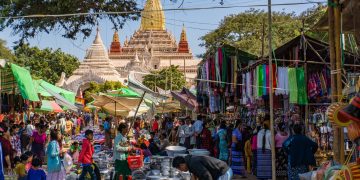The people of Myanmar are becoming increasingly vulnerable due to the impact of a wide range of shocks, including the COVID-19 pandemic, political instability, armed conflict, global economic disruptions, and climate change. The collection of high-frequency socio-economic data is essential to understanding the scope of these shocks, their impacts on household welfare, and the efficient […]
To assess the economic and food and nutrition security impacts of COVID-19 in Myanmar, IFPRI-Myanmar developed and implemented the Rural-Urban Food Security Survey (RUFSS), a household phone survey of approximately 2,000 mothers in urban and peri-urban Yangon, Myanmar’s largest city, and in the rural Dry Zone, an agricultural production area in the center of Myanmar. RUFSS was initiated in June 2020.
